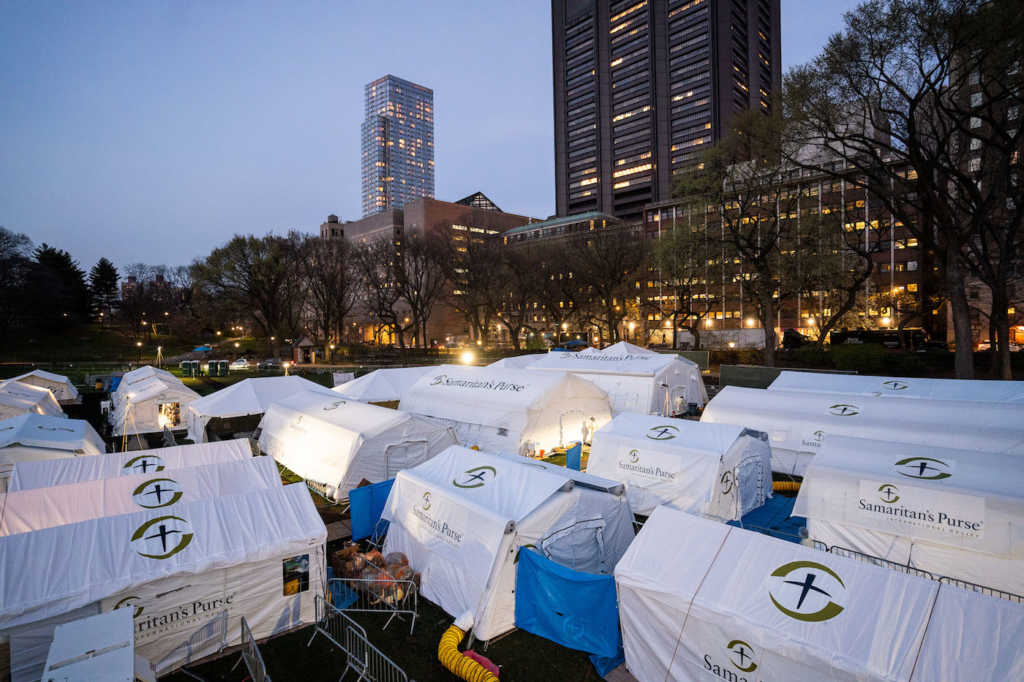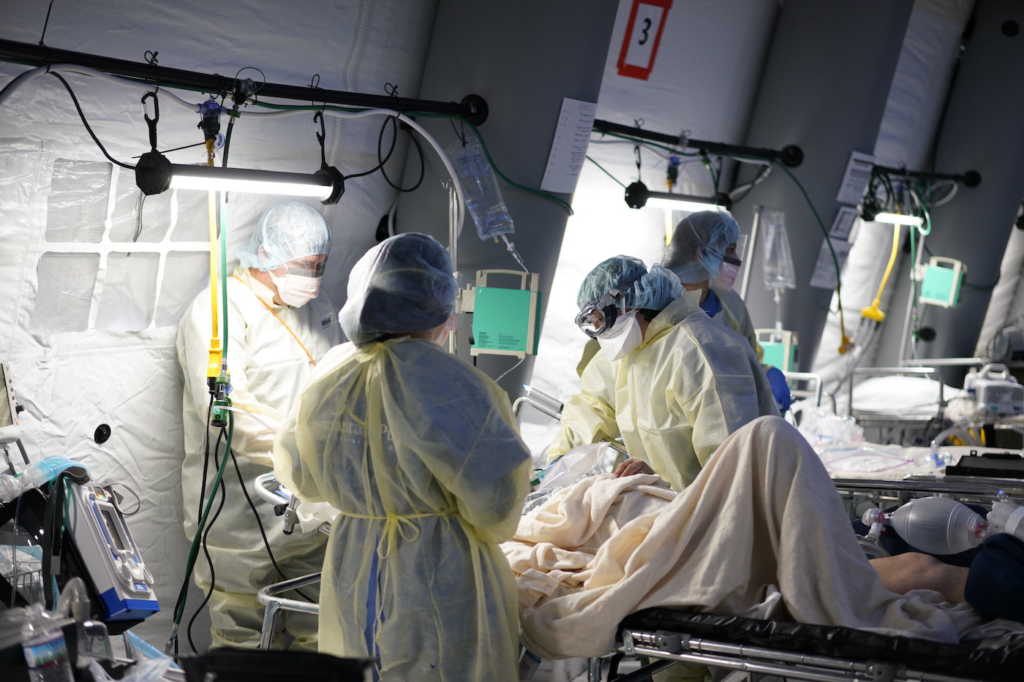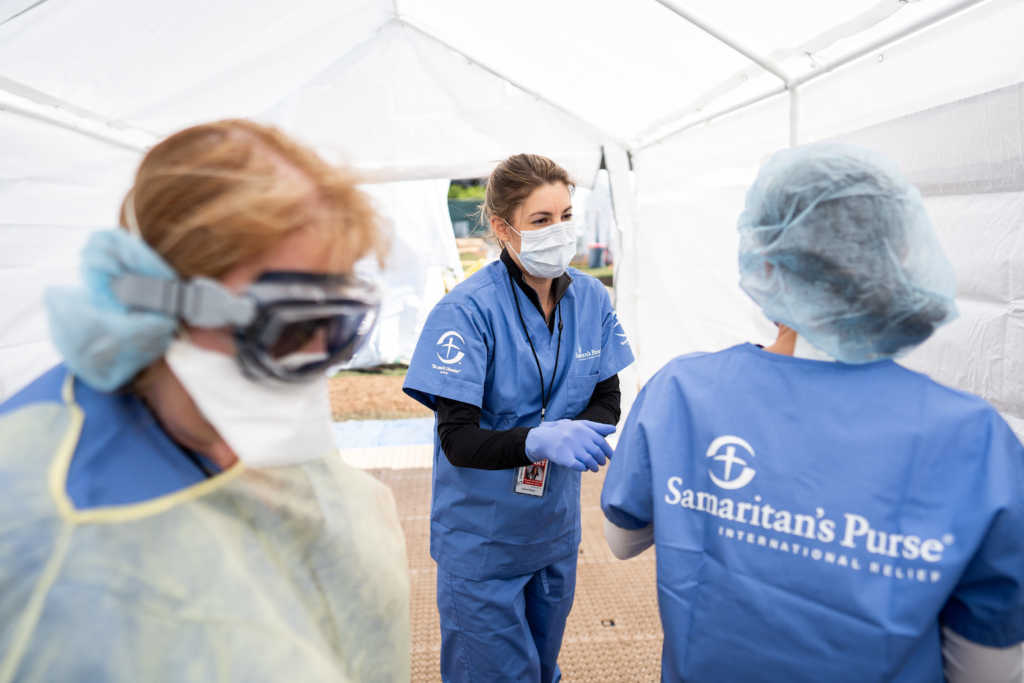After more than a month in Central Park, the Samaritan’s Purse field hospital is winding down its operations with only two patients remaining.
The humanitarian organization opened a field hospital in New York City on April 1, after officials with the Mount Sinai Health System reached out to ask for help, the Rev. Franklin Graham, who serves as president of Samaritan’s Purse, told Faithwire.
In total, the group served more than 300 patients.
Faithwire caught up with Graham on Monday afternoon to talk about the work Samaritan’s Purse did in New York City and the backlash they faced. Some of his answers have been lightly edited for clarity.
FW: How did you see God move in Central Park?
FG: I think it’s not just New York City, but I think the world has changed in these four to six weeks. We’ve never had a situation where the world closed down. New York has never closed down in anyone’s memory.
I think what’s happened is people sensed that something is changing, and they don’t know what it is, and people are afraid. It’s given us an opportunity to present the Gospel, with people eager to listen. So I’m just thankful for that.
FW: You faced some backlash from a loud minority, I think. Did that influence the decision to close the field hospital in Central Park?
FG: No, the backlash had nothing to do with it. We have been planning with Mount Sinai for the last two weeks, closing either this week or next week. It was going to be based on patient load and nothing else.
We’re down to two patients in the hospital and we believe they will be out by the end of this week. We certainly won’t close the hospital if we still have somebody in it. But we believe that Friday should be our last day in New York.
FW: In a statement, you responded to pro-LGBTQ critics angry over Samaritan’s Purse setting up a field hospital in New York. Why?
FG: Well, we were getting pushback from the gay community because of our statement of faith, and part of that statement of faith is a person has to say they agree to the biblical principles of a marriage between a man and a woman. This got the gay community very upset. And the congressional delegation from New York state wrote to the governor wanting him to investigate why we were in Central Park.

We got quite a bit of pushback. But the interesting thing is we didn’t get any pushback from the hospital that we’re working under, Mount Sinai. We just have to realize that, in life, we always get people who don’t like what we do for whatever reason.
We just felt it was important that we would go ahead and treat people. We were there to save lives. We weren’t there to argue with people. We’ll have a discussion after this pandemic is over, but for right now, we’ve got to save lives, and we felt that was what was important.
FW: One story that caught a lot of attention was about a non-Christian volunteer, Whitney Tilson. Can you tell me a little about him?
FG: Whitney is just an incredible guy who is wealthy and he’s quite well-known in his own field in investments and he just looked out of his apartment window and he saw the field hospital going up, so he came down to see if he could help.
Next thing you know, he had a shovel in his hand and helped roll out the tents and carried mulch for the walkways. He was just an incredible help. He went down to Costco and he bought food for our people — a carload of it. So I called him up just to say “thank you.” He’s not a Christian, but he certainly has been a friend to us and we hope that he’ll come to faith one day. He’s just a nice man with a big, big heart and it was a privilege not only to have him help us, but we count him as a friend.
FW: Are there any stories from your time in Central Park that really made an impression on you?
FG: Boy, that’s a hard one to answer, because we have so many incredible stories. I think for me, the stories that are the most impactful are the people who say “thank you” as they leave, some of them with tears coming down their faces. I know of one lady who came into the field hospital — it was at night — and she was afraid. And she said as soon as she came into the field hospital, she experienced peace in her heart. She said, “I felt safe.”

We’ve had several people say they didn’t want to go home because they felt safe in the field hospital. To me, that’s a testimony to our staff and to the care and to the work that they did, doing this unto Jesus Christ. They’re doing it in His name.
FW: What did your nurses and doctors learn about the coronavirus in the time they’ve been in Central Park?
FG: I think our doctors and nurses are probably better prepared than anybody in the country, because we have fought Ebola and we have experience with Ebola, which will kill you. The coronavirus is nothing like Ebola; it’s dangerous, and to certain classes of people — people with underlying health issues — it can be deadly.
We had experience treating Ebola. And so all infectious diseases, we treat it like it’s Ebola. Our doctors and nurses have been safe. In New York City, no one got sick. But that wasn’t true at the hospitals around us. They had many of their staff get sick. We took greater care in how we treated the disease.
FW: What’s your relationship like with Mount Sinai as Samaritan’s Purse prepares to leave New York City?
FG: It’s very good. These are great people and they’ve been very supportive. They’re the ones who called us originally. We didn’t call them; they called us. And we agreed to go and we have not charged them one penny. All of our services have been paid by God’s people.
FW: What’s the Gospel impact as you leave Central Park?
FG: Everybody in the city of New York knows about the tent hospital. We are there in Jesus’ name. It’s just something God has done and it’s given us the opportunity to magnify His name in the middle of a crisis.



